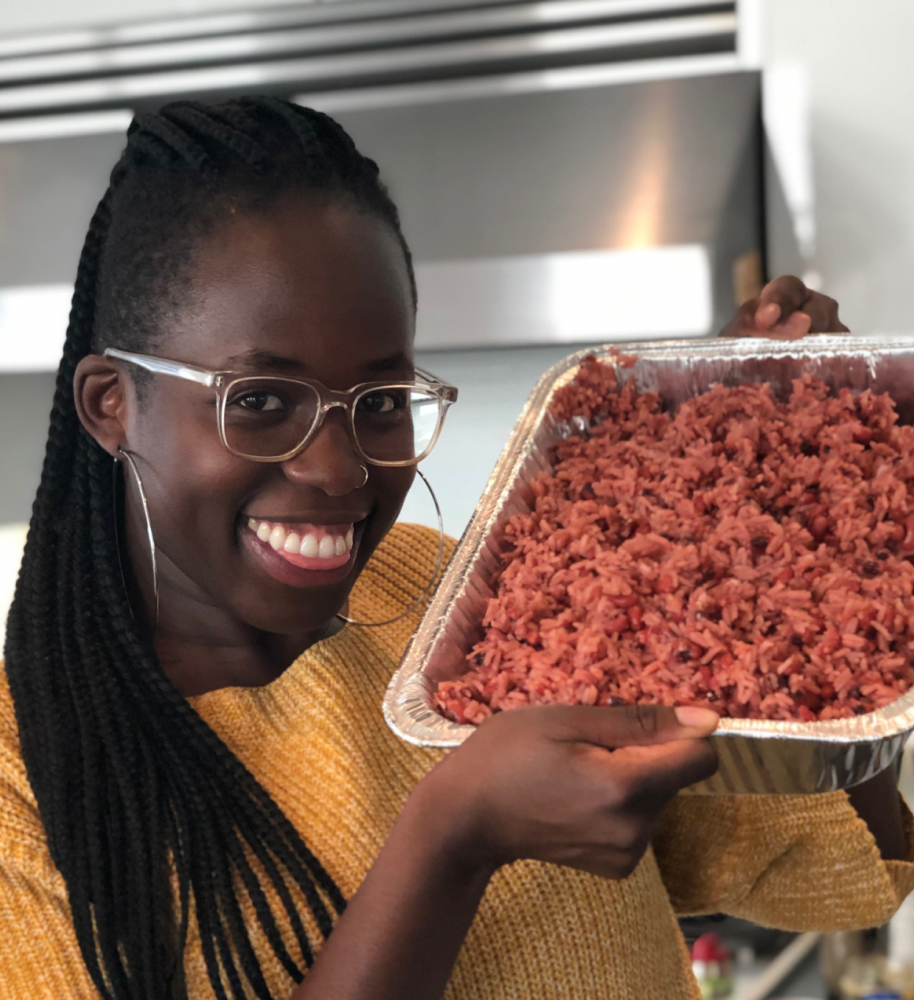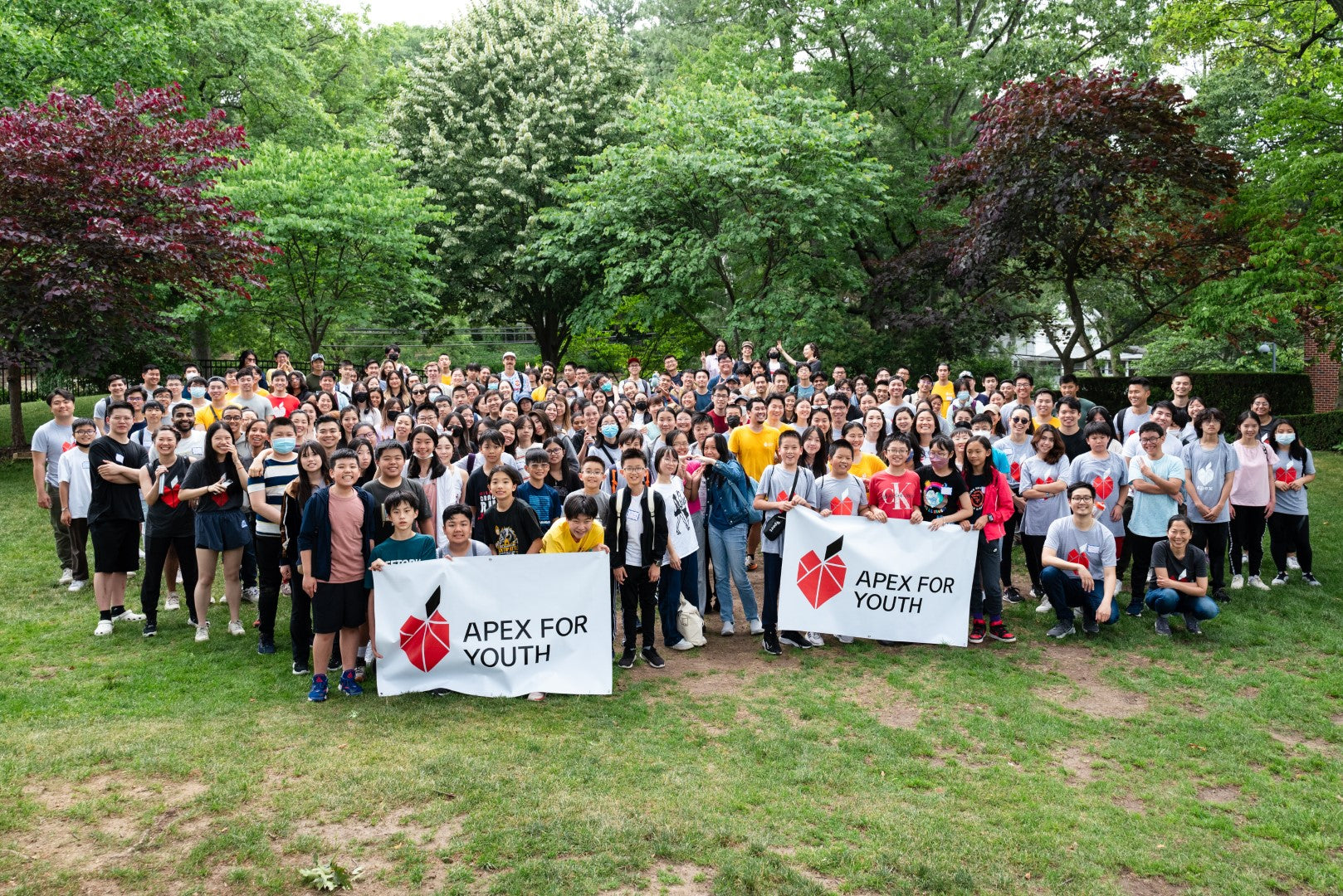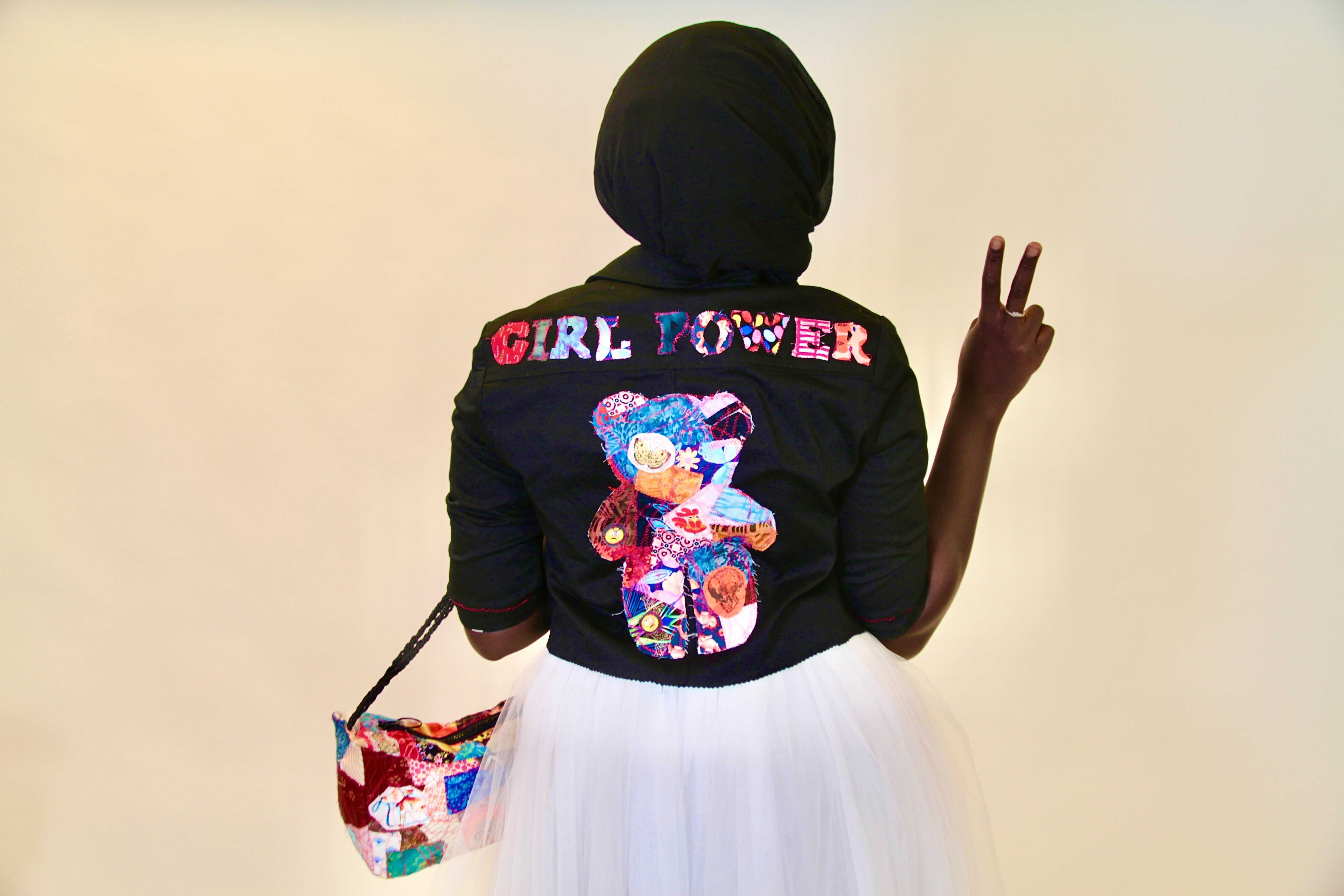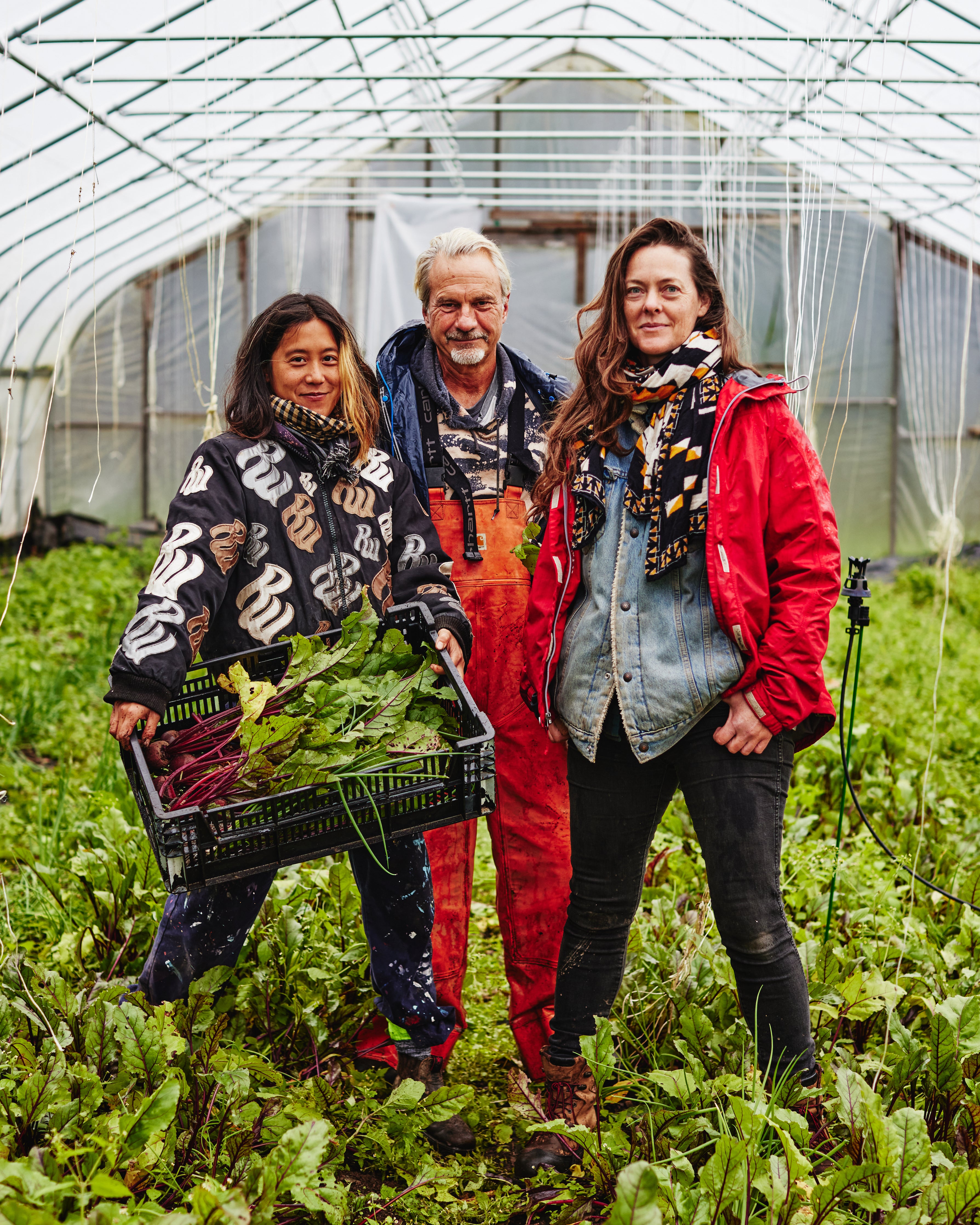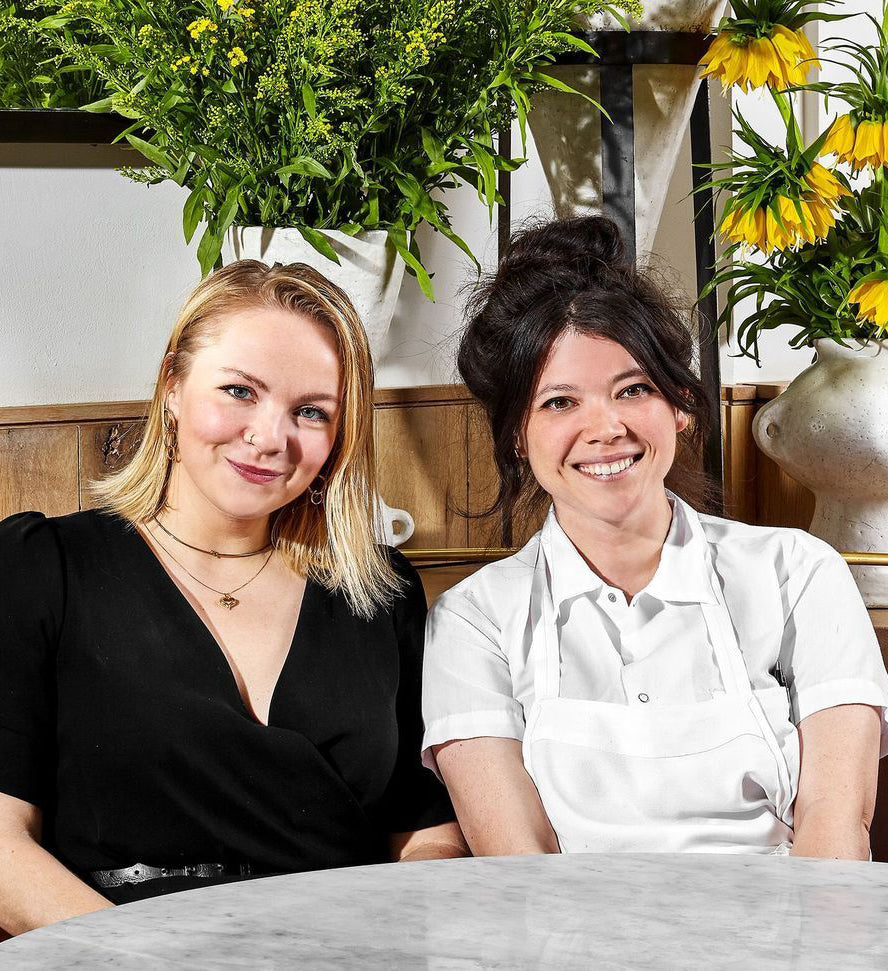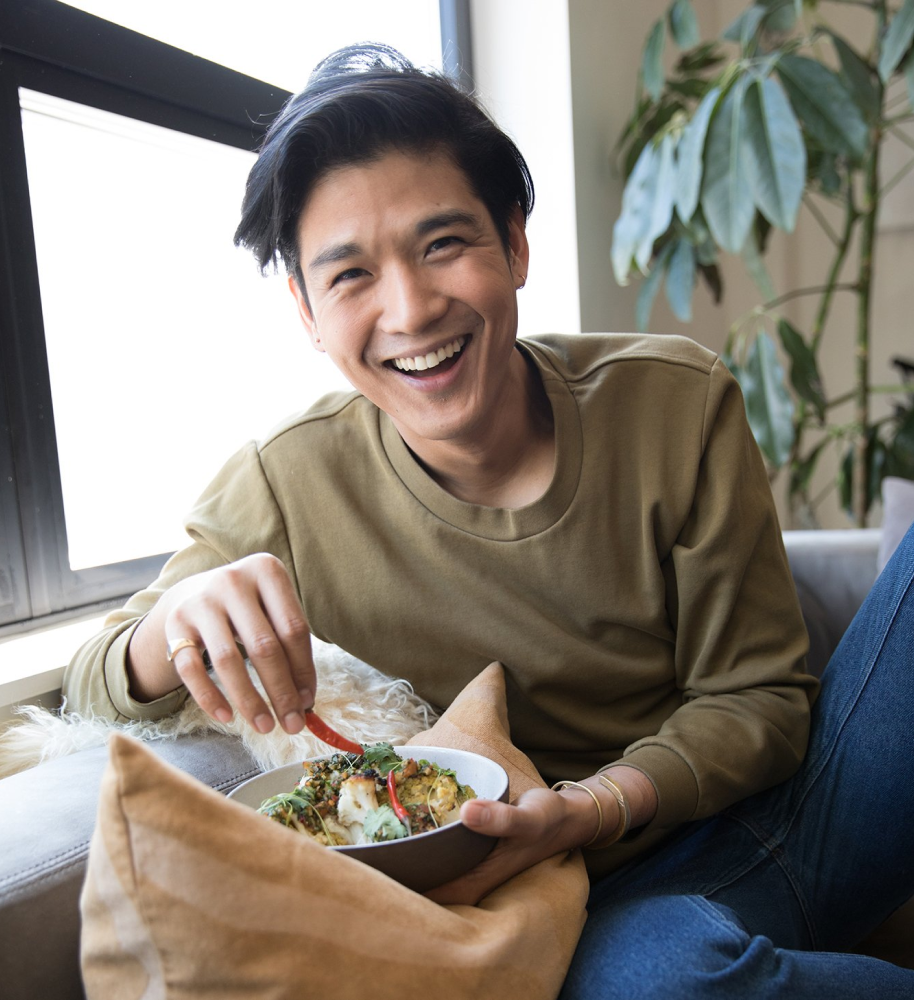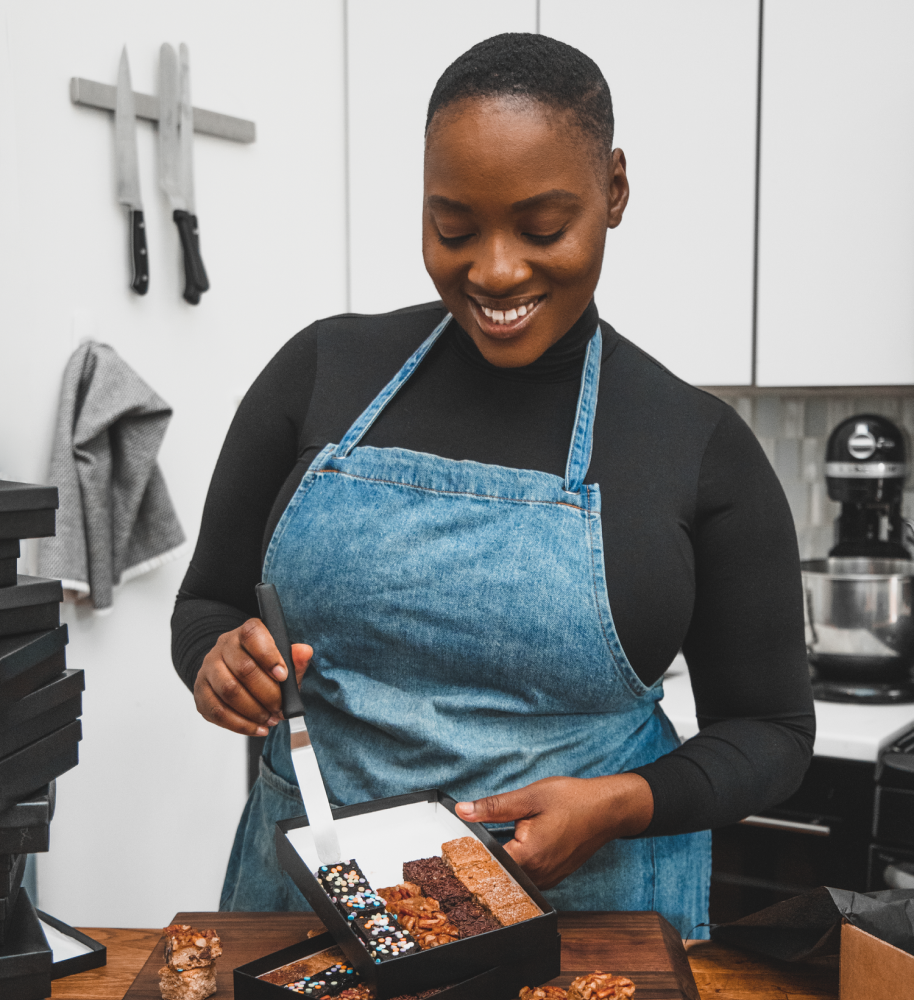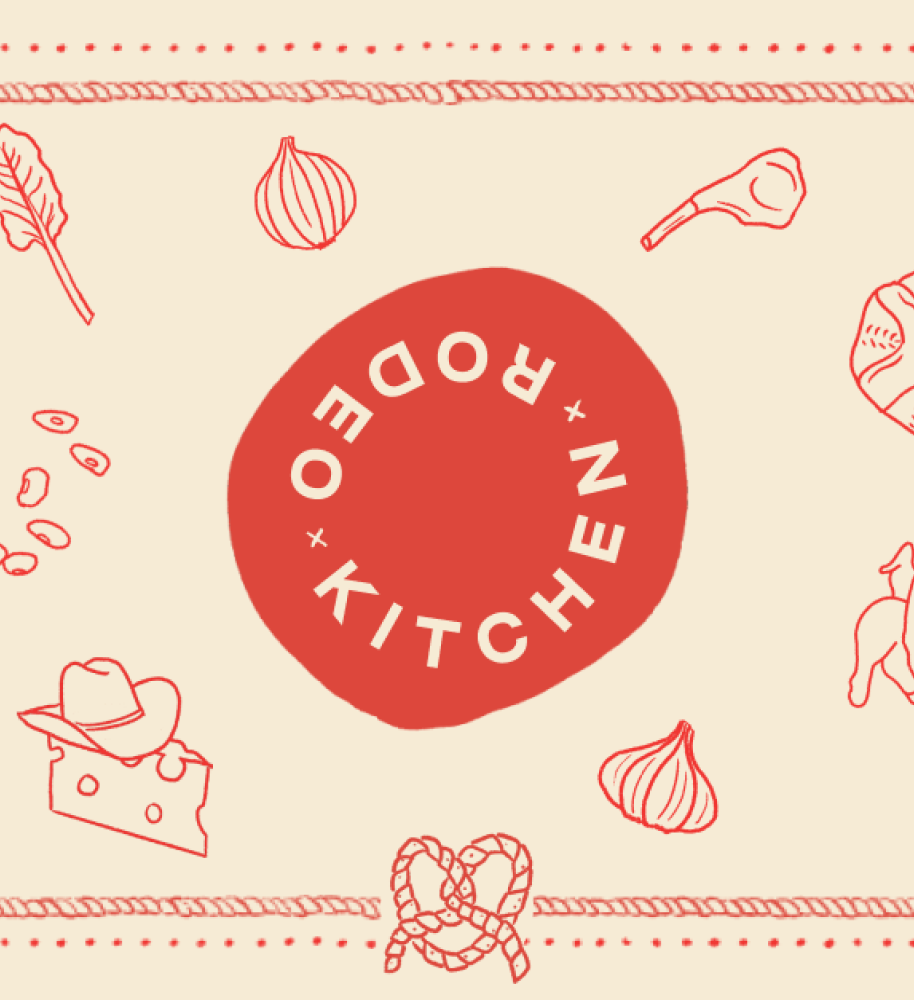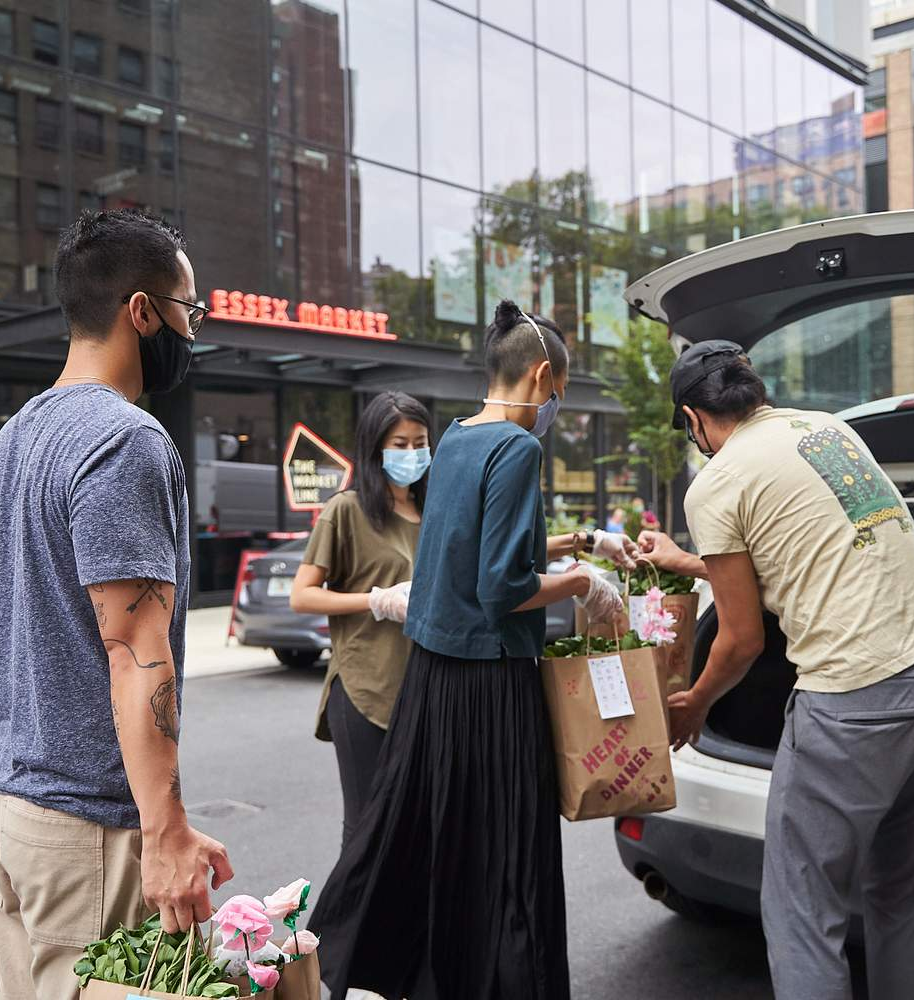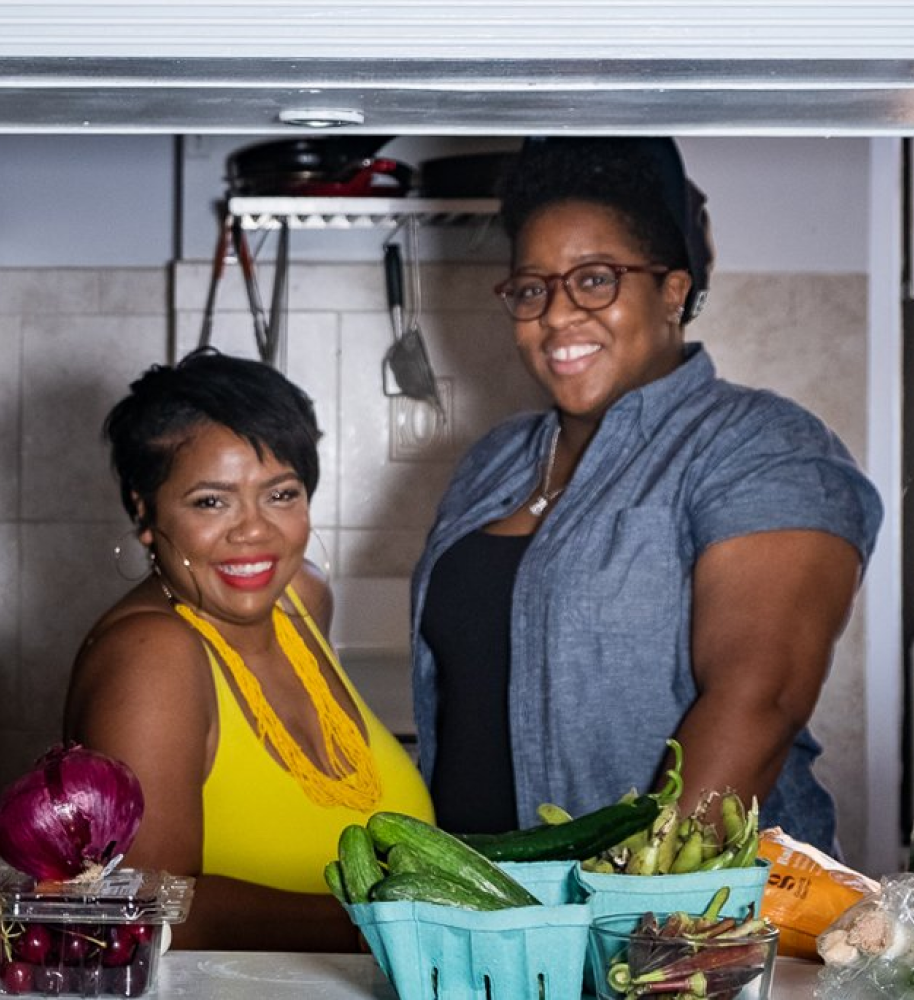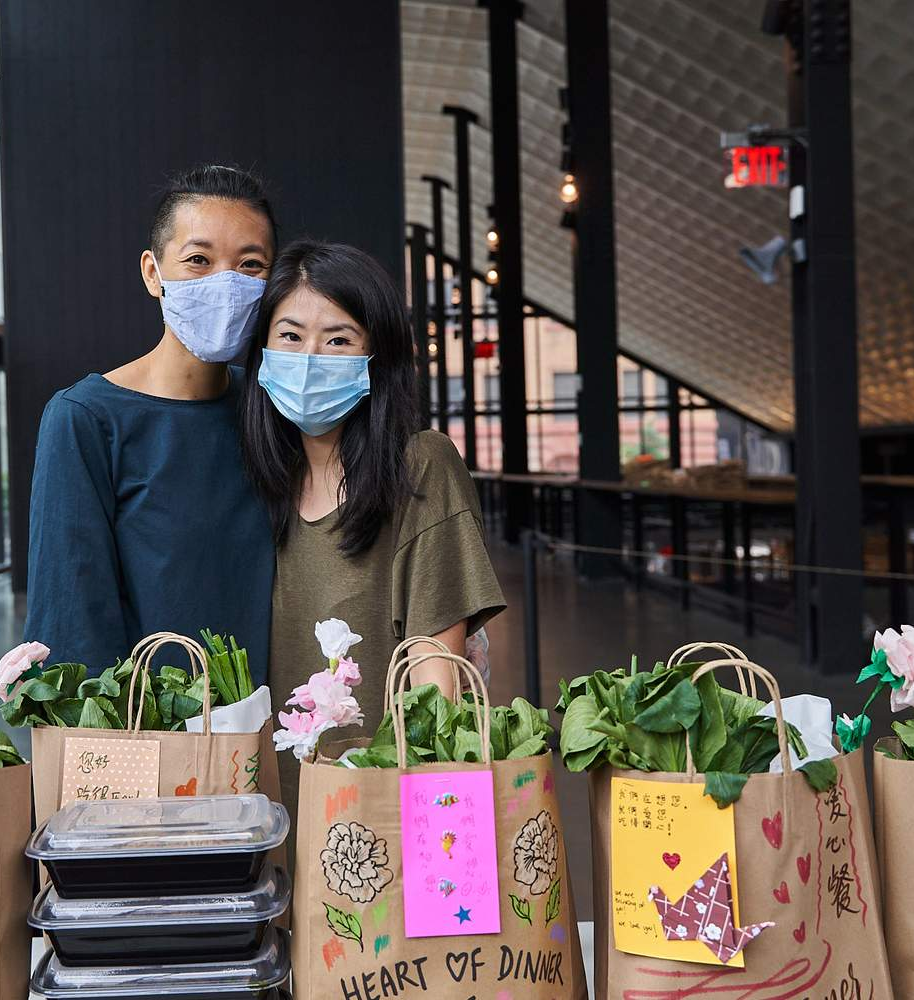There’s a common refrain Ruth Nakaar heard from her family when she was growing up: ‘fu di naa?’ It means ‘have you eaten?’ in Dagaare, a native language of Ghana, where her family is from.
The phrase has served as inspiration for Fudena, Ruth’s fast casual restaurant concept, serving her takes on the Ghanian and west African dishes she grew up with, served in customizable bowls with a grain, protein, veggie and topping. Fudena was supposed to open earlier this year in March, but was postponed because of coronavirus. The delay hasn’t stopped Ruth from using her kitchen to explore west African cuisines and give her community in Philadelphia a taste of Fudena’s menu and the dishes that are close to her heart. We caught up with Ruth on a recent weekday to talk about how perfecting the menu for Fudena has opened her eyes to how cooking is a labor of love and connected her to her community even more.
On the inspiration for Fudena
Fudena grew out of a very personal pain point: I moved to DC after college and some nights, I'd get off work, and just crave the foods that I ate in my childhood. Even though there are a few African restaurants in the area, they had long wait times and I wondered why I couldn't just grab a quick familiar African meal, under one minute, like at a Chipotle or a Cava. And so Fudena was born last year when I got back to school for my second year of my MBA program in Philadelphia.
It's kind of funny cause I never cooked growing up. My mom would always try to drag me into the kitchen to teach me how to cook but I'd always make up excuses, so I never really learned how to cook when I lived at home with my parents. It's only when I started craving those flavors and creating recipes for Fudena that I became really interested in learning how to cook these meals that I was so used to eating.
My parents are from the upper west region of Ghana near Burkina Faso and I grew up in Connecticut. I'm a home trained cook. I get all my recipes from my mom, from my cousins or friends, and from the internet. My mom finds it very funny that I like to cook now after all these years of trying to teach me.

There’s a common refrain Ruth Nakaar heard from her family when she was growing up: ‘fu di naa?’ It means ‘have you eaten?’ in Dagaare, a native language of Ghana.

On How Cooking Has Illuminated Similarities in West African Cuisines
The menu for Fudena focuses on what I know, which is Ghanian food, but I’ve learned that a lot of Ghanian food is eaten in other countries. Jollof rice, for example, originated in Senegal but is eaten across the whole West African region and other African countries. Plantains mixed with assorted spices is a dish in Ghana that's known under a different name in neighboring Cote D'Ivoire. I definitely want to expand my menu to include other dishes from across the West African region.
On Cooking as a Labor of Love
Since starting Fudena, I’ve definitely gained a huge appreciation for my mom and all my aunties and older cousins. I remember from my childhood, seeing them cooking for parties and they’d start the day before to get everything done in time. When I first started doing my recipe tasting here on campus with my classmates, I'd prepare four different variations of jollof rice to test which recipe people liked the best and I’d end up cooking the whole day. Afterwards my whole body would be so tired and achy and I thought, ‘how did I not know that this is what my mom and my maternal figures from my childhood went through?’
Growing up I felt like womanhood was defined by how well you can cook, especially as an African woman. Cooking was very gendered for me, but I realized through learning more about the food, cooking for myself and seeing all the different chefs creating African food for a western audience, that it doesn’t have to be. It shouldn't be a gendered activity because cooking is for everyone.
I feel like cooking is like another expression of love. I learned that from my childhood, from my mom and now I’ve learned it in my own kitchen.

There’s all these linkages across the Black diaspora and it's really important for me to highlight those connections.

On What She Wants Fudena Diners to Take Away
I struggle with figuring out the balance between appealing to a mainstream audience and keeping dishes authentic to the culture. I pair dishes with familiar foods like kale and potatoes and chicken because I want to reduce any hesitation people might have approaching west African food if they’ve never had it before. I want it to be a gateway and I want customers to become curious and try more west African food. Jambalaya is a younger sibling of jollof rice and rice and peas is found in the Caribbean. There’s all these linkages across the Black diaspora and it's really important for me to highlight those connections.
On Her Favorite Menu Item to Cook
My jollof rice has gotten a lot better after a lot of failures. And then I have this curry goat as a choice of protein on my menu that’s my favorite. It's kind of a mash up between Caribbean flavors and west African flavors. I love my kale and I love the plantains so much. Plantains are my favorite food. So that's why I love my plantain donuts because it mashes up plantains and donuts, which I also love. Oh, I guess I just love the whole menu!

Ingredient sourcing is really important to me... The percentage of Black owned farms in the US is less than 2% of the total amount of farms, which is an appalling statistic.

On Giving Back
Ingredient sourcing is really important to me. We source a portion of our ingredients from Black owned farms because it’s important to me to support them. The percentage of Black owned farms in the US is less than 2% of the total amount of farms, which is an appalling statistic. I want to use my business to serve my community and do everything that I can to help. For the month of June, I donated a portion of our proceeds to the local Philly chapter of Black Lives Matter as well as to the Trans Justice Funding Project. I want Fudena to have a social impact dimension and I hope to keep that as we scale.
For my partnership with Material, I chose Philly Urban Creators as the beneficiary of proceeds because of their commitment to providing fresh produce to the local community and serving as a restorative cultural and educational space for young leaders. As a Black business owner - now, more than ever - I think it's vital to support other Black-owned organizations, because as the adage says: “If you want to go quickly, go alone. If you want to go far, go together.”
